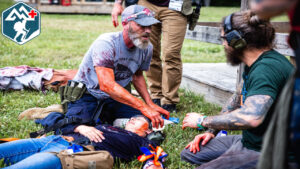The Well-Rounded Medic Pt 2. Physical Fitness

In Part 1 of this series I discussed beginning my journey into grappling as a way helping myself to become a more well rounded medic. There are a variety of skills that are useful to learn so that you are operating at top efficiency and helping as many people as possible in dangerous locals, alongside dangerous people.
The reason I wanted to work on grappling was in part due to my desire to increase my physical fitness. For any person looking to save a life, their own or someone else’s, fitness is vitally important.
As a medic, it’s important to have the physical skills needed to lift your casualties to safety, and then to lift yourself up after them so you are not added to the list of victims. While it’s important to be able to move your body quickly to the side of a downed civilian, it’s even more important to run away, or extricate yourself if the situation turns into a dangerous one for you.
Additionally, if you are injured in the performance of your duties, the better shape your body is in, the more likely you will recover from grievous wounds. Those with bodies that are not healthy, and lacking strength will expire from their wounds far more quickly.
This is why the elderly will often die from wounds that would be easy to shake off for a young man or woman. A strong, athletic physique is better able to catch itself in a fall and heal back damaged muscle tissue.
Moving casualties is an essential part of being a medic. The human body is incredibly awkward to transport, especially when you are not trying to cause further harm by dropping the victim onto the pavement. Understanding good body and lifting mechanics along with flexible joints will further reduce injury from the highly physical duties of an emergency and combat medic.
Functional fitness is of vital importance to any medic who takes their role seriously. The fitter your body is, the clearer your thoughts will be during high stress situations, and you will be better able to maintain good decision making since your brain isn’t struggling to get the O2 it needs to function properly.
Suggestions for getting started:
- Start small. Make a simple goal, like getting to the gym 3 days a week. Let yourself do what ever you want when you get there, treadmill, bike, whatever, but just get yourself in the habit of getting to the place you need to work.
- Start slow. If you haven't been working out on a regular basis for the last few years, you need to go slow or you’ll hurt yourself, any down time because of excess soreness or injury means you’re not progressing. Keep that ego in check!
- Follow a few body weight and mobility social media channels. Heavy lifting is nice, but mobility means longevity, and good cardio means you can run to, and away from danger as quickly as possible.
